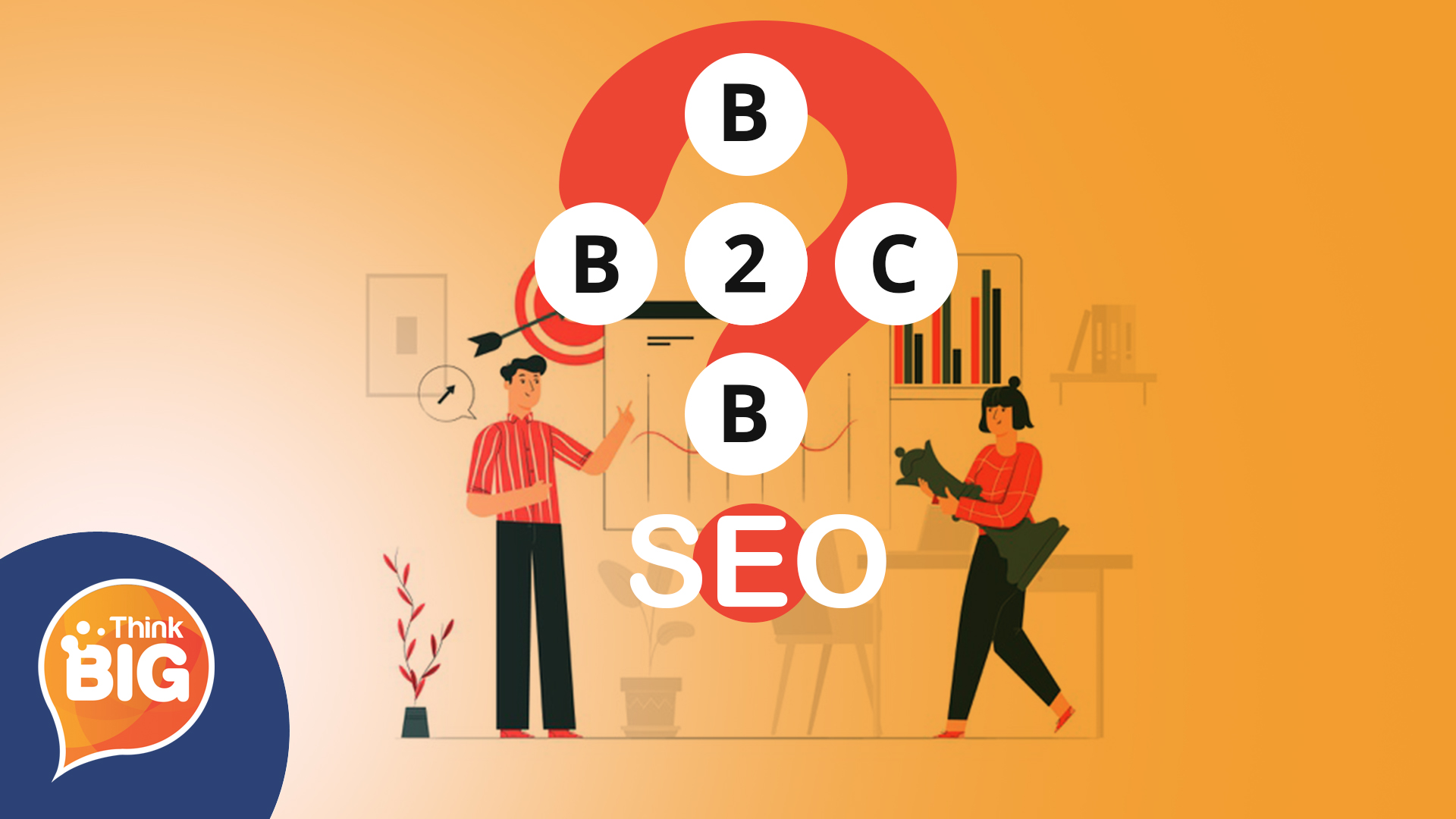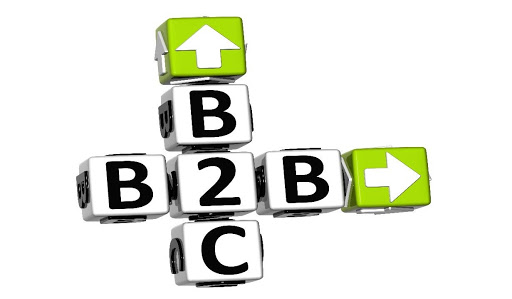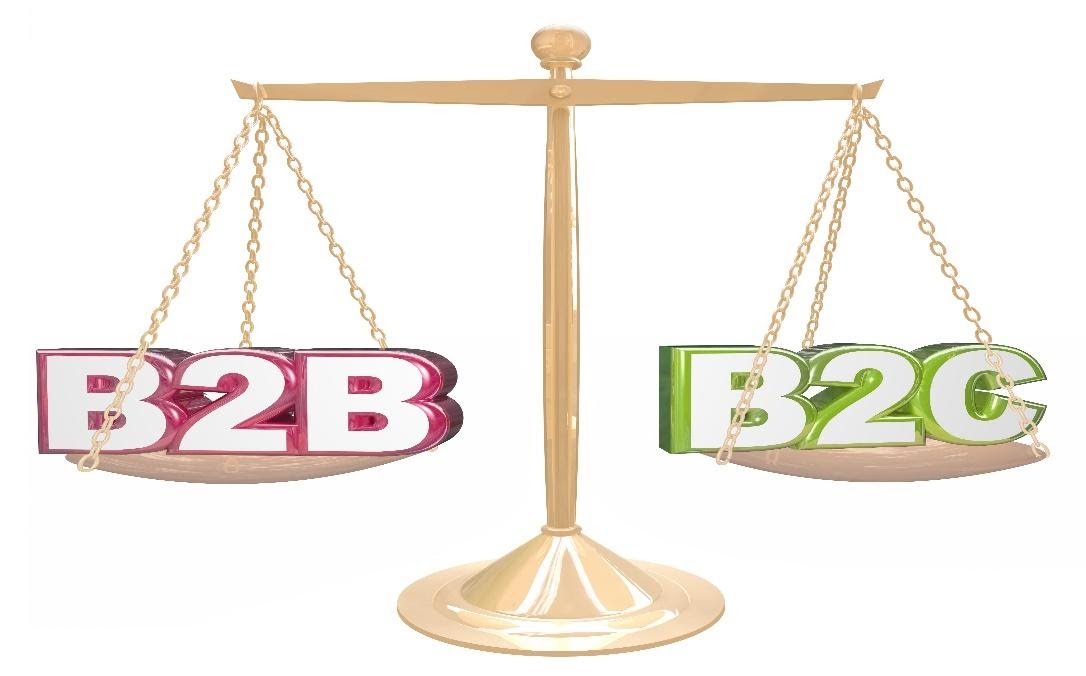
You must have heard the phrase “If your business isn’t on the first page of Google, it doesn’t exist” many times over. Well, it’s true. Why?
Because, unlike the other digital marketing strategies that have come and gone, SEO is still one of the best ways to reach your online audience.

But it doesn’t end there. If you’re after successful digital marketing campaigns, a one-size-fits-all approach isn’t the best way to achieve it.
Your first step towards successful SEO campaigns begins when you understand the differences that exist between B2B SEO and B2C SEO.
But before we go into all of that, let’s take a look at what B2B and B2C mean.
B2B and B2C: What Do They Mean Anyway?

B2B means business-to-business and it involves selling your services or products to other businesses.
While B2C means business-to-consumer and it deals with selling your services or products directly to the consumers.
Your business can have both models at the same time if you’re looking to diversify and serve a wider market.
A good example is Amazon. Amazon is a world leader when it comes to e-commerce [B2C] and they also serve businesses with their cloud computing services [B2B].
Now that we’ve cleared the air on that, let’s get right into the differences between B2B SEO and B2C SEO.
The Differences Between B2B SEO and B2C SEO.
1.The Audience.

As you may already know, the first difference between B2B and B2C is in who the target audience is. When it comes to making B2C purchases, that decision is taken by a single person who hopped online and entered multiple searches for the right fit.
B2B purchases, on the other hand, tend to be long-term investments and so, the buying decisions are influenced by more than one person. Simply put…there are more decision-makers involved.
A manager will approach a buying decision with a different problem in mind than an executive or a practitioner would.
An effective B2B SEO strategy will need to account for the multiple searches that could take place in the research process.
This simply means if you’re targeting B2B companies, your pages will need to be optimized to answer either:
- The strategic questions that practitioners might have on increasing their email open rates,
- The many questions managers have on the best practices for email marketing, or
- The top-level questions executives have on scaling their marketing teams.
Now, this is just an example. Your buyer personas can be wider depending on the products you’re selling or your service offerings.
2.The Goals of Your Marketing Campaign.

The goal of a B2B digital marketing strategy is the same as that of a B2C search campaign: to boost revenue and generate more sales.
But you can’t measure how successful your B2B search engine optimization is, the same way you’d measure that of a B2C campaign.
When it comes to B2C SEO, it’s pretty straightforward; you’re looking to drive traffic to your online platforms or website to sell your services or products. So, all you need to do is to make the website visits of your prospects, stress-free and ensure that you’re giving them quality products/services at a fair price.
This is not the same for B2B SEO. Having your landing page on the first page of search engines is just the beginning. Your goal shouldn’t be to make immediate ‘sales’ but first, drive conversions that lead to sales. This could be you requesting your site visitors to ‘take a 30-day trial’ or ‘request a demo’ to determine your qualified leads.
3. Language and Keywords.
Tone/Language:

As a B2C, you speak directly to your consumers who may or may not have an in-depth knowledge of your products or services. If your prospects fall into this category, then the tone or language of the content on your website needs to be less technical, more general, and relatable.
If you’re targeting a B2B audience, they’re more likely to know about some specifics of your service or product offerings. They’re more interested in your level of expertise, the features of your products, and your past clients.
With that being said, you need to use a set of specialized words to be found online but don’t go overboard with this. Keep your content readable and always balance industry-specific words with clear and concise language.
Keywords/Search Terms:

Unless your business is quite known for a certain service or product, we don’t advise you to promote its name over the keywords your prospects are using.
In many cases, when your prospects search for a product or service, the volume of the keywords used are bigger. And you’ll still need to rank higher than your competitors for the same keywords.
However, most B2C keywords tend to be over-saturated. So, you might be faced with the challenge of finding the ones that aren’t too saturated and will still drive decent traffic to your site.
But with B2B SEO, it goes beyond your website showing up when businesses search for your product category. It’s more about your audience getting used to seeing your website in the search engine results page [SERP] when they ask questions related to their job on Google.
4. Content Marketing.

B2C content marketing can be used for link building, advertising, and to boost your online presence via your websites and social media platforms.
However, when it comes to B2B, your prospects are driven by logic and are drawn in from a narrower field. Your leads are typically businesses looking for the solutions you offer to pass to their clientele or use for their internal operations.
So, you’re more concerned about building brand awareness, educating, and generating demand.
Final Thoughts.
Since B2B SEO requires more work, you might need to hire a B2B SEO expert or a B2B SEO agency instead of doing it in-house. Whatever you decide, it’s important that you, first, understand these differences.
So, if you’ve got a B2B or B2C company, you need to evaluate your SEO strategy regularly as Google always updates its algorithms to “punish” websites with bad SEO practices.

